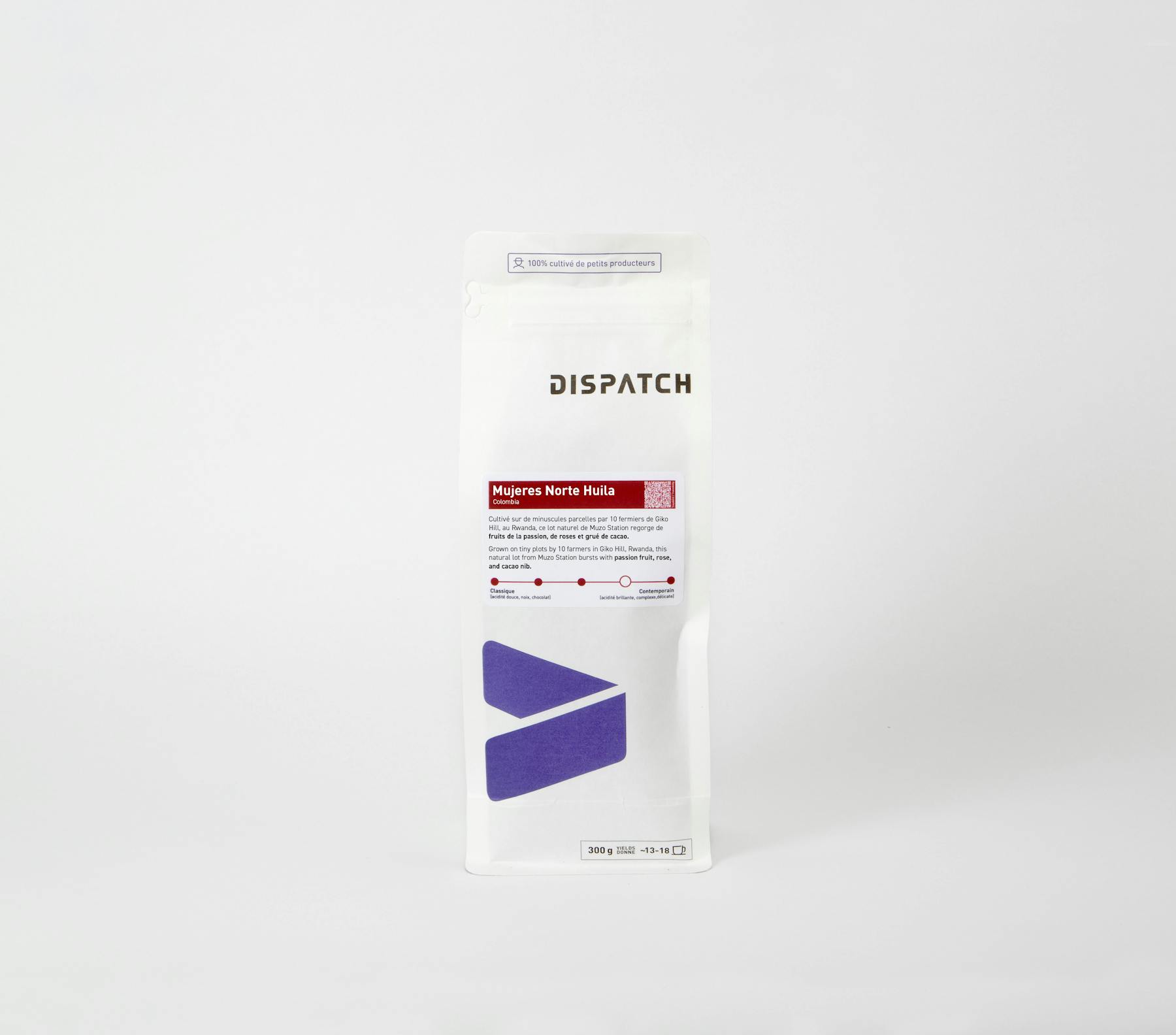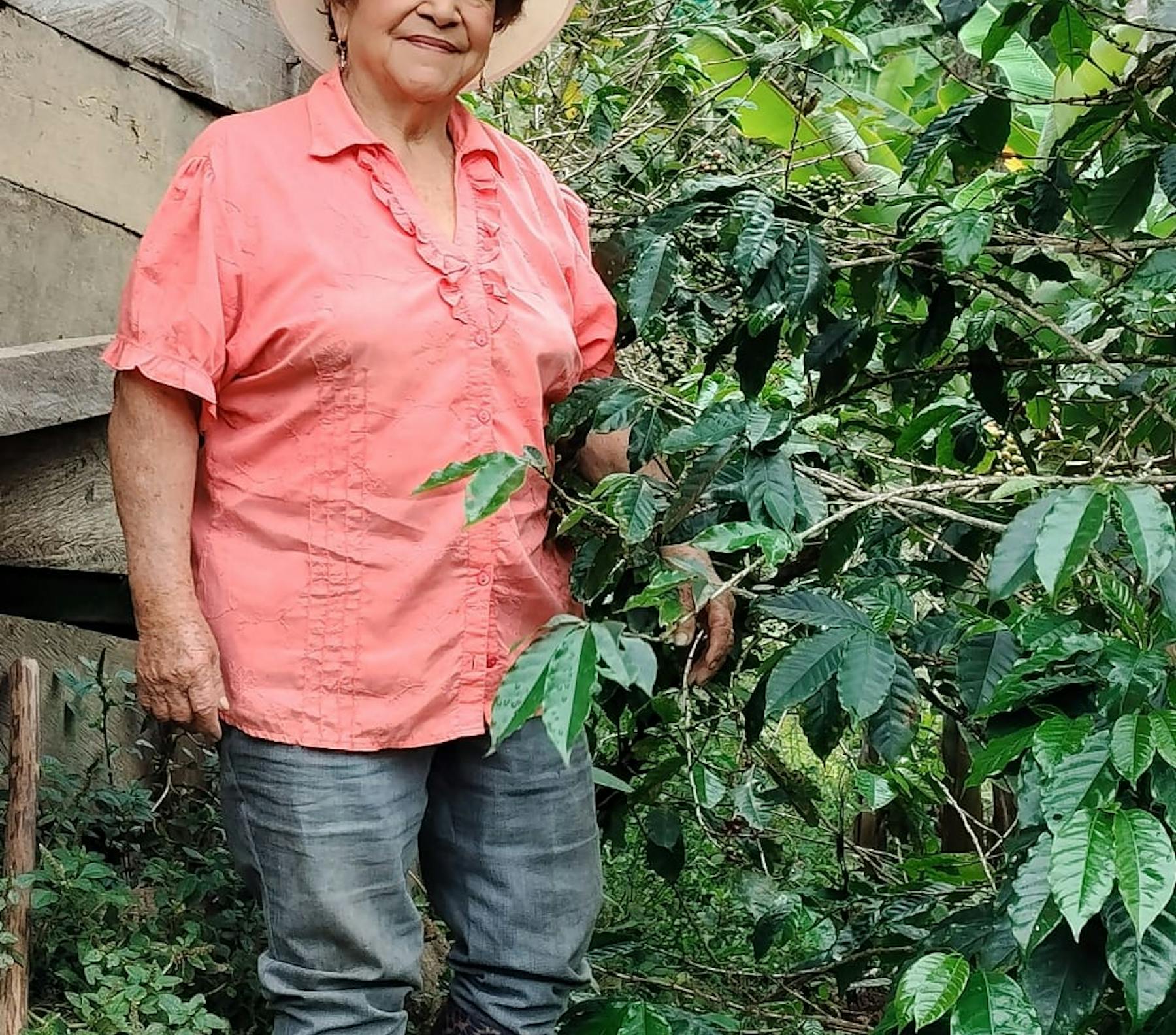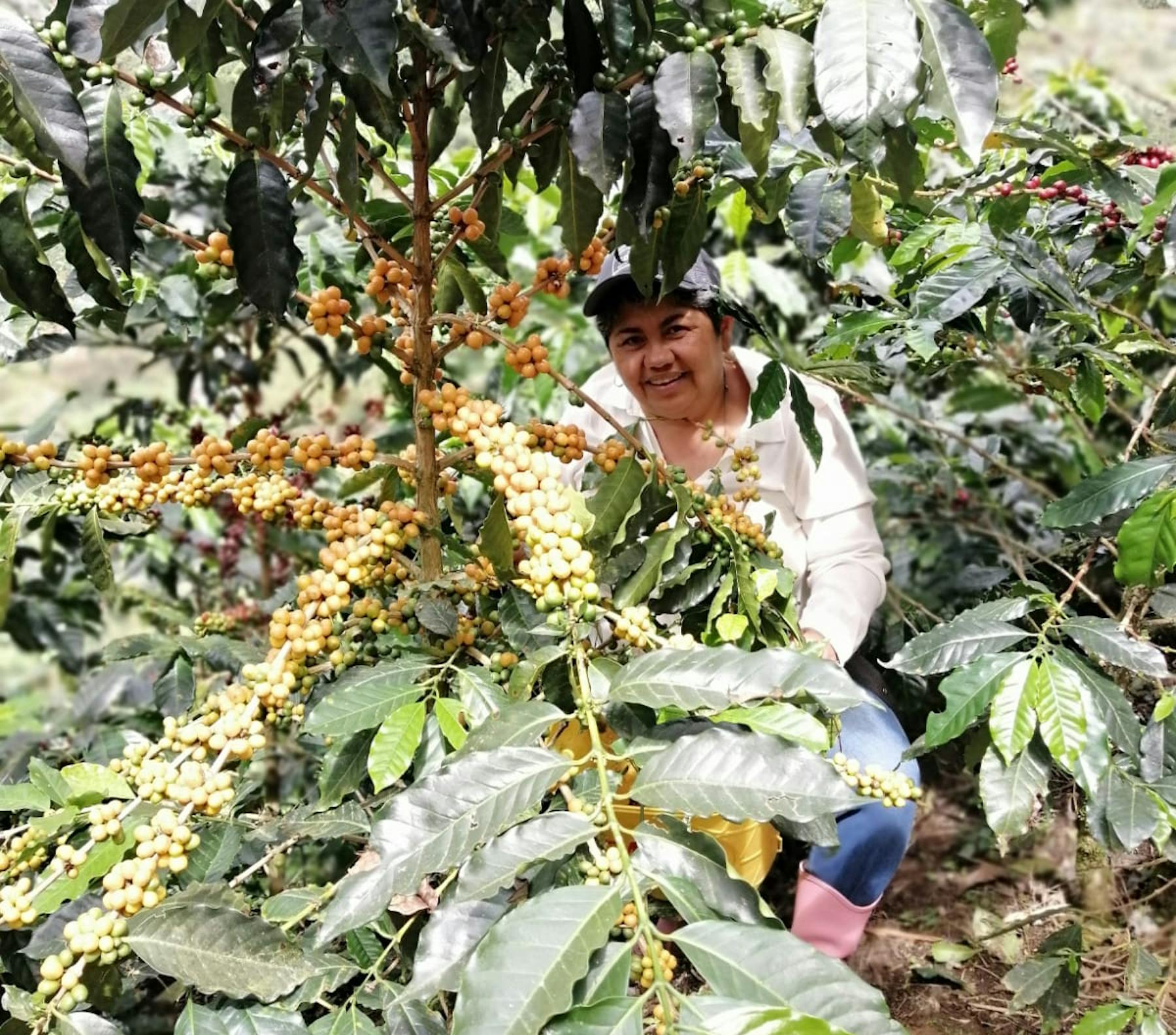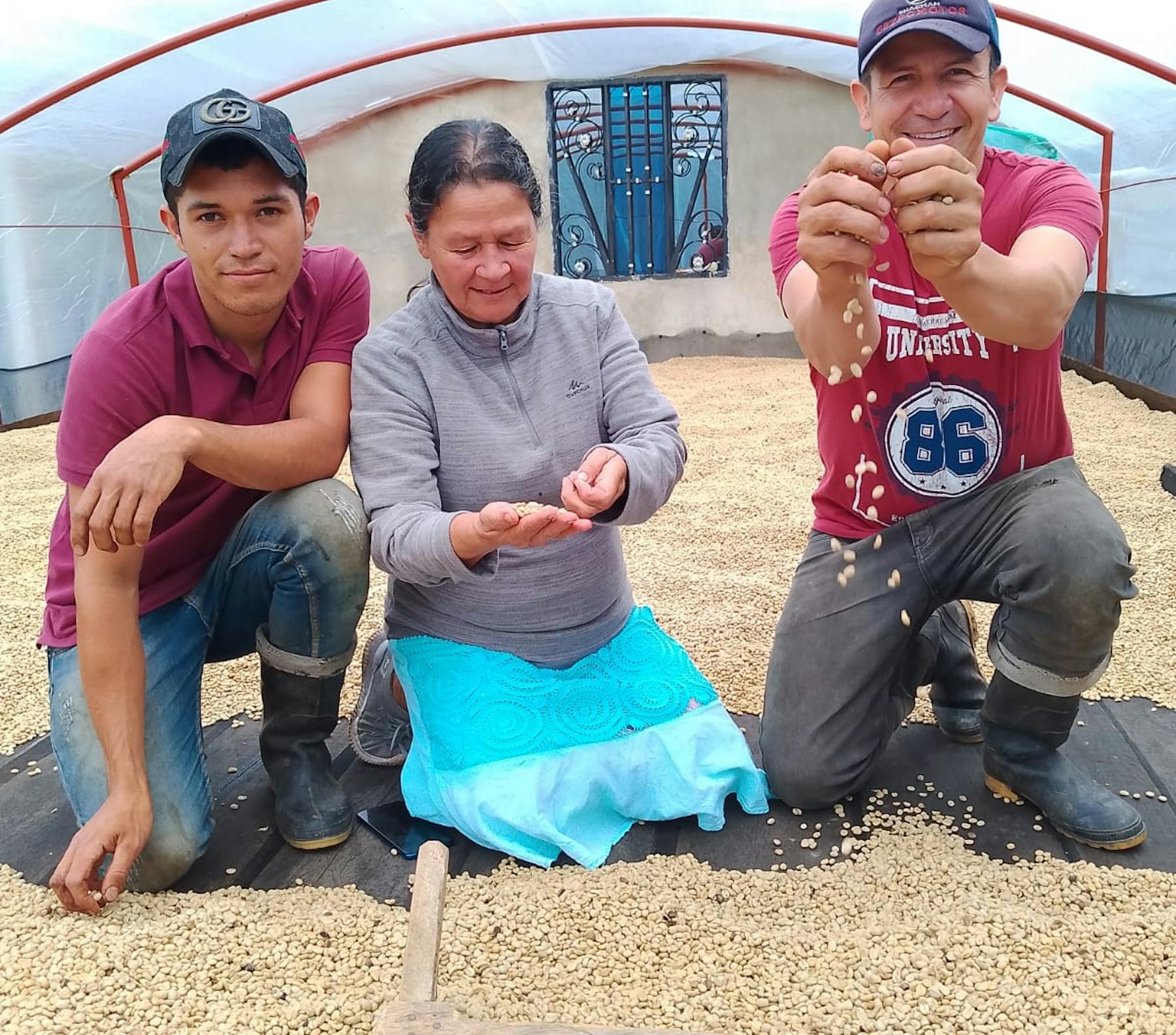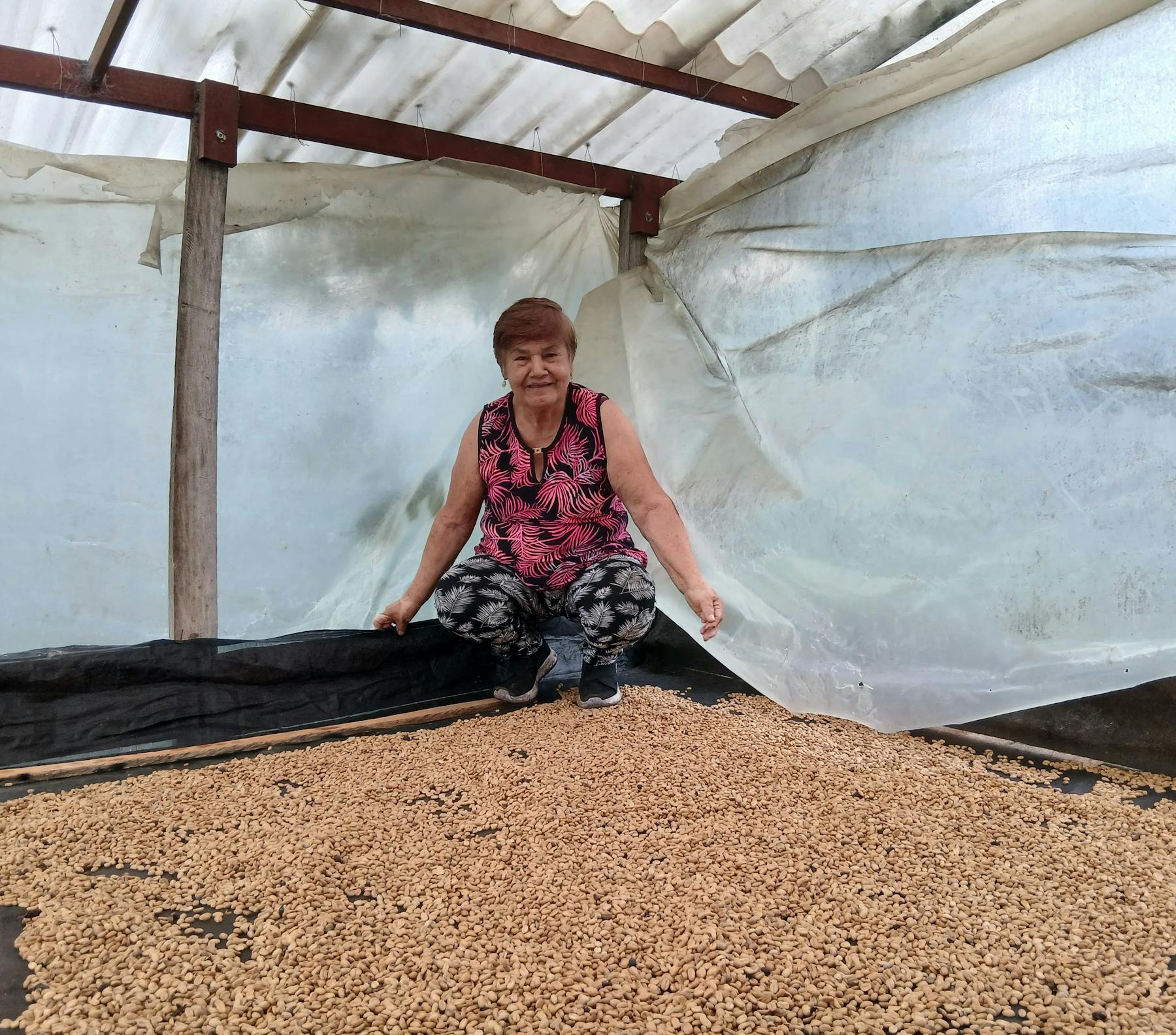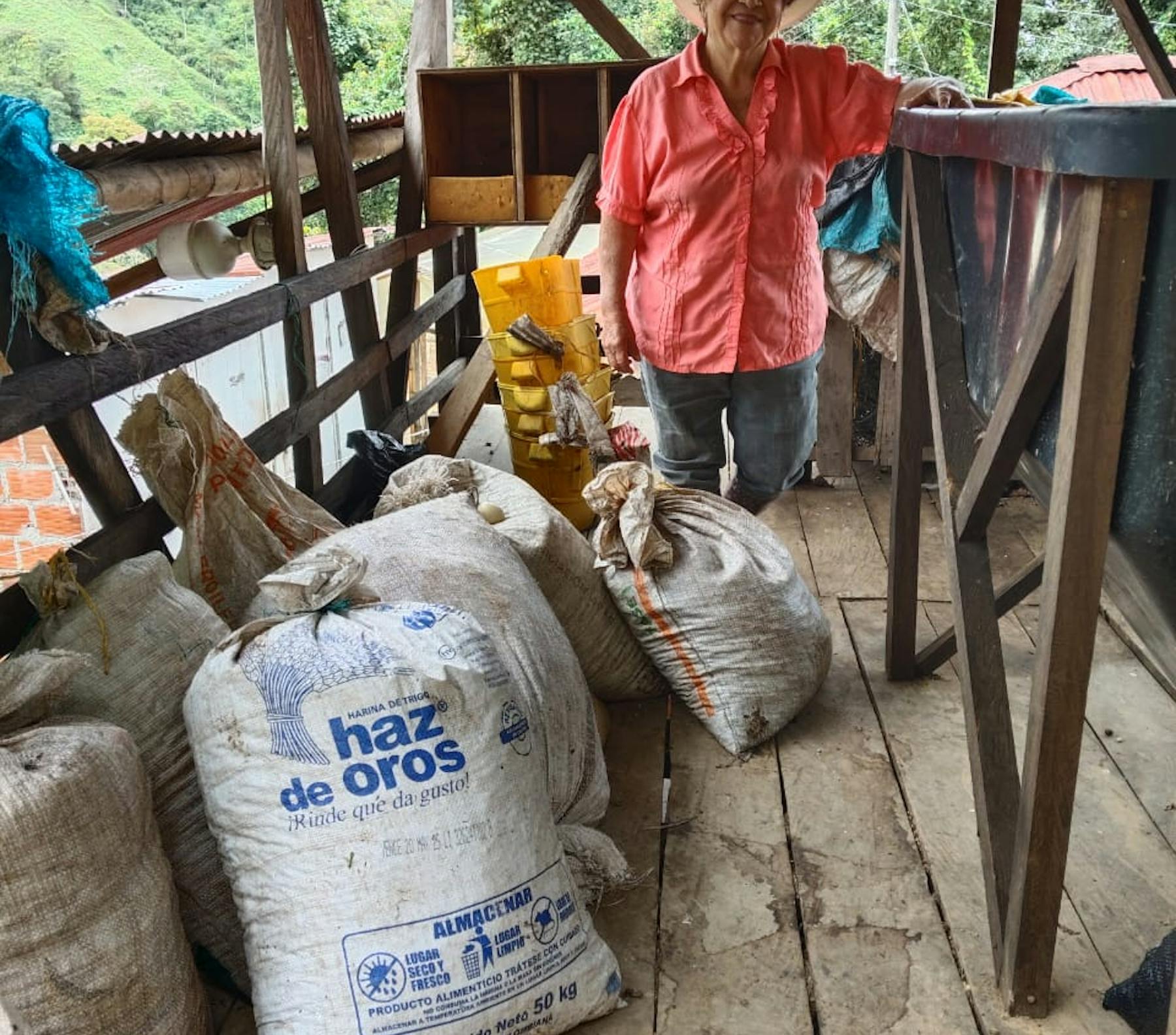Story
Named and custom assembled for Dispatch by our export partners, Azahar, Mujeres Norte Huila spotlights the four women who produced this Colombian community lot: Ederleth Lozano Molina, Arugeny Camacho Ladino, Nohora Sepúlveda de Zambrano, and Sara Díaz de Rodríguez. This project supports our vision for closing the gender gap across the value chain (our goal in 2026 is to hit 50% women-grown beans by volume, we’re at 40% in 2025). Comprised of coffee grown and processed on their own farms in the towns of Algeciras and Palermo (at altitudes up to 1,670 MASL), this specialty blend of Caturra, Castillo, Cenicafe 1, Colombia, and Papayo varieties brings flavours of honey, yellow plum, and candied grapefruit.
We worked with US-based importers Covoya Specialty Coffee on our recent Decaf Arcoíris as well, both in partnership with Azahar; a developing relationship as we look to repeat more traceable, equitable purchases like this going forward. Based in Bogotá, Azahar’s ties with the regional producer community are deeply entrenched and widely spread. They have helped small rural farmers across this diverse, mountainous terrain to transport harvests, access dry mills and closer selling points, and vigilantly battle climate uncertainty which has plagued crops in recent years. Despite all these roadblocks, growers in Colombia’s northern departments produce consistently superior quality specialty coffee for export.
These four farmers operate independently, each with 30-50 years of experience and multiple buyer relationships, yet they are part of a broader context of the ways in which women producers are helping to drive gender equity forward in Huila. Several prominent women-led cooperatives and associations have formed in the past 20 years committed to excellence and structuralizing resilience within their community. Stabilizing fair market prices, minimizing food insecurity, and driving change through gender independence, women leaders here are building brighter futures for their families, future generations, and each other. These co-ops prioritize sustainable agriculture too, using organic fertilizers and natural water conservation methods, ensuring the biodiversity of their environment remains intact.
Huila is Colombia’s top coffee producing department. The quality of production is as skyhigh as the Central Andes, thanks to this exceptional biodiversity and a climate friendly to a range of high-yield coffee plants. This blend’s multiple varieties are all well-adapted to the moderate temperatures and bimodal rainfall patterns of the Colombian Cafetero (“coffee axis”), gaining structure, balance, and sweetness from the altitude during cultivation.
Extended drying and fermentation periods have helped develop this specialty microlot blend after harvest. Cherries were hand-picked at peak ripeness, depulped, and washed on farms, then dried in marquesinas for 7-15 days. Mujeres Norte Huila pays tribute to the leadership of women and the resilience of this prolific coffee-growing community in Colombia.
